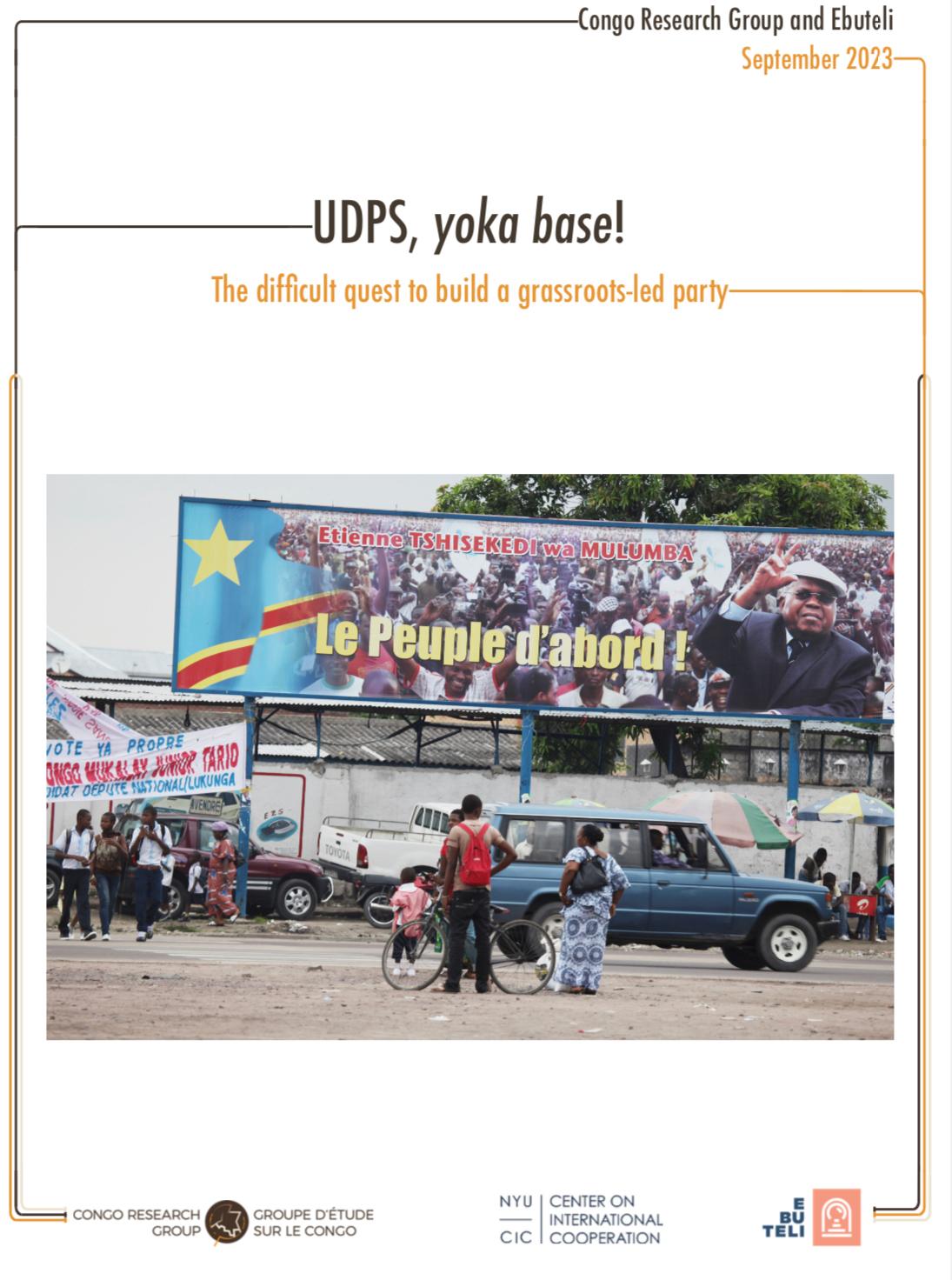The following is a translation from the original French text of the press release for these reports, originally issued November 30, 2022.
Political parties play a major role in building democracy. Thirty-two years after the end of the one-party system, the DRC has more than 600 political parties, including 37 political parties and party groups (regroupements politiques) represented in the national assembly in the current legislative session. However, multi-party democracy has produced few concrete results in the DRC. It has led to the fragmentation of the political arena, without improving the quality of political debate or the diversity of political ideas. Political parties have generally remained a means for their leaders to accumulate financial resources and distribute positions through favoritism.
Ebuteli and the Congo reserach Group (CRG) are publishing two reports on the most important political parties of the last decade in the DRC: Né au pouvoir: 20 ans du Parti du peuple pour la reconstruction et la démocratie (2002-2022) and UDPS, yoka base! – The difficult quest to build a grassroots-led party. These two reports review the history of these political organizations and focus on accountability mechanisms within them. They lay bare the structural flaws from which these political organizations suffer.

These reports point to the lack of accountability to the grassroots within the PPRD and UDPS, and demonstrate how this hampers internal democracy and the ability of party members to hold their leaders accountable.
In the 20 years of its existence, the PPRD, for example, has placed little emphasis on ideology. Its founder, former president Joseph Kabila, appears to be the final arbiter of all important party decisions. Moreover, the PPRD’s formal structures are short circuited by informal power groups.
“Being a party born in power, and around Joseph Kabila, the PPRD has always struggled to find an existence outside its founder. So today, without power and apparently without solid ideological ties, the former president’s party seems to be losing its importance on the Congolese political scene“, explains Joshua Walker, lead author of one of the reports.
In its evolution from the struggle for democracy to the conquest of power, the UDPS has not fared much better. Numerous reforms within the party have often led to the weakening of internal control mechanisms, thereby undermining the ideal of party governance placing substantial power ingrassroots members and activists.
“This report shows how various reforms have transformed the UDPS into a genuine party of elites, and how Étienne Tshisekedi has become the moral authority of the UDPS,” says Fred Bauma, the other main author of these reports.
Ebuteli and CRG recommend that these two parties, PPRD and UDPS, like all other Congolese political organizations, give more power to internal institutions that can make leaders more accountable to their supporters and to voters. These two major parties should also draw up clear and realistic political platforms. The electoral law should also be amended to reduce the number of parties. Finally, the law on party financing needs to be applied effectively to reduce the dependence of political organizations on unaccountable elites.
Read the full report here.
